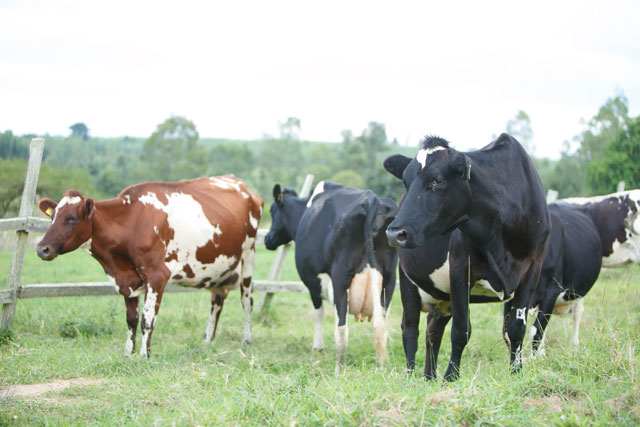
Kampala, Uganda | THE INDEPENDENT | The Kitgum production department has resorted to artificial insemination services in a bid to boost output and returns in the livestock and dairy sector.
Dr Alfred Kinyera, the senior district veterinary officer, says the move to adopt artificial insemination is meant to boost the quality of the indigenous local livestock breeds which will be cross-bred with high-quality cattle breeds like Frisian, Jersey, Ayrshire Brown, Boran and Sahiwal among others.
The program is being implemented by the district production department, the Ministry of Agriculture, Animal Industry and Fisheries and the National Animal Genetics Resources Centre, (NAGRC) Data Bank. NAGRIC has provided the district with adequate liquid nitrogen and semen.
According to Dr Kinyera; adoption of the technology will not only boost the quality and quantity of the indigenous breeds but also increase income for the farmers since locally cross-bred animals are high in milk production and also resistant to venereal diseases.
David Komakech a livestock farmer in Labongo Akwang sub county says artificial insemination technology had generally remained unexploited due to bottlenecks of farmer’s inability to purchase liquid nitrogen and semen, and the inadequacy of trained insemination technicians.
The district secretary for production Joyce Alwoch however, says with the availability of the semen and trained personnel, farmers are now being urged to embrace the program since it will help them increase their earnings through quality beef and milk production from optimized crossbreed livestock.
Dr Kinyera says farmers are currently undergoing inductions on animal husbandry reproductive health and artificial insemination program that is free of charge and targets to have over 1,000 animals in the district inseminated this financial year.
Under the program, farmers are only expected to detect the heat periods of their animals and immediately report to the trained field extension officers as this is crucial in the reproductive performance of local herds as early or late insemination may lead to conception failure.
******
URN
 The Independent Uganda: You get the Truth we Pay the Price
The Independent Uganda: You get the Truth we Pay the Price

